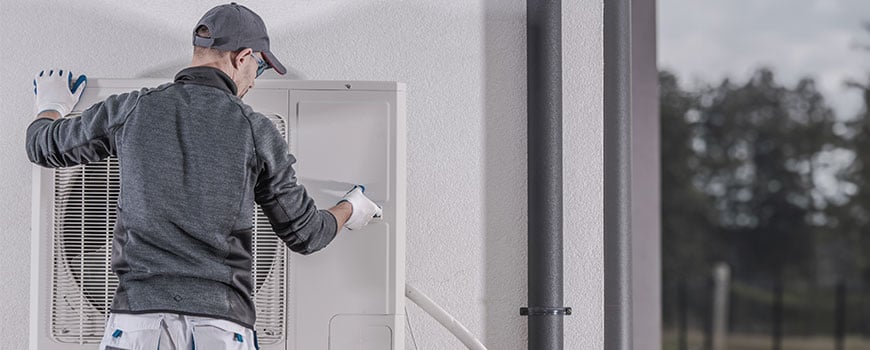 The Building Engineering Services Association (BESA) has launched a new round of free heat pump installation training to help the industry upskill its workforce in line with soaring demand as the market grows.
The Building Engineering Services Association (BESA) has launched a new round of free heat pump installation training to help the industry upskill its workforce in line with soaring demand as the market grows.
The new course blends practical training and online learning, and the first 400 places are being offered free of charge. It is the next phase of a programme the Association runs in partnership with MCS and heating equipment manufacturer Worcester Bosch. The first phase of online training was completed by 1,000 installers.
The Association also welcomed increased government funding which will help it to grow its training provision in Further Education colleges and give local training providers the equipment and skilled trainers needed to deliver courses leading to MCS certification.
BESA was one of the organisations to benefit from the £9.2m of funding provided by the Department for Energy Security and Net Zero following its recent Home Decarbonisation Skills Training competition to support heat pump and energy efficiency training across England.
The Association’s share will allow it to deliver free training for qualified plumbing, heating, refrigeration, and air conditioning engineers looking to upskill, and provide the technical competence for businesses to be guided through the MCS-accreditation process.
This new hybrid course is being delivered through the Association’s online training Academy and will run until the end of July. It includes a two-day practical element as well as five hours of online theory which can be completed in ‘bite size chunks’ at the convenience of the student.
Assessment
The two days practical and final assessment will take place at one of BESA’s approved local colleges or training centres. On completing the training, students will be able to correctly specify and install low temperature heating systems, accurately size components, commission, and handover systems properly, as well as carrying out lifecycle maintenance.
BESA said the government support would also create a “significant training legacy” by helping with the development of more training centres able to produce a new generation of engineers with the necessary skills to retrofit homes and commercial buildings.
Momentum is building in the heat pump sector and a recent pilot project showed that the technology can be successfully deployed in all types of UK housing. The Electrification of Heat Demonstration Project, which was also funded by the department then known as BEIS, did however illustrate the need for more innovation to overcome some of the barriers to a widespread roll out of the technology including cost and disruption.
“The pilot project demonstrated the huge potential for heat pumps, but a key factor will be the industry’s ability to meet demand with a suitably trained workforce,” said BESA’s director of training and skills Helen Yeulet. “We are facing a race against time to keep the decarbonisation of UK heat on track so must rapidly scale up our training provision.”
She added that upskilling to become a heat pump installer was a great way to “future-proof your business while helping homeowners and businesses reduce their energy bills and contribute to our long-term battle against climate change”.
‘Training the trainers’ was a key element of BESA’s successful application for additional funding to help extend the network of FE colleges and independent training centres able to deliver heat pump courses. The hands-on practicality of the course and the final assessment process it has developed with Worcester Bosch was another element appreciated by the government.
Yeulet added that, because MCS certification was becoming more widely recognised as the industry standard, it was important that installers were also helped to navigate their way through the system so they could start applying their skills in the marketplace.
“This collaboration and the additional funding will allow us to create an extended network of local training hubs equipped to deliver meaningful, practical training to ensure heat pump technology performs to its full potential,” said Yeulet.
“It will also help installers explain the various options to homeowners and commercial building customers which is a good way to gain a reputation as a knowledgeable and trustworthy business.”


